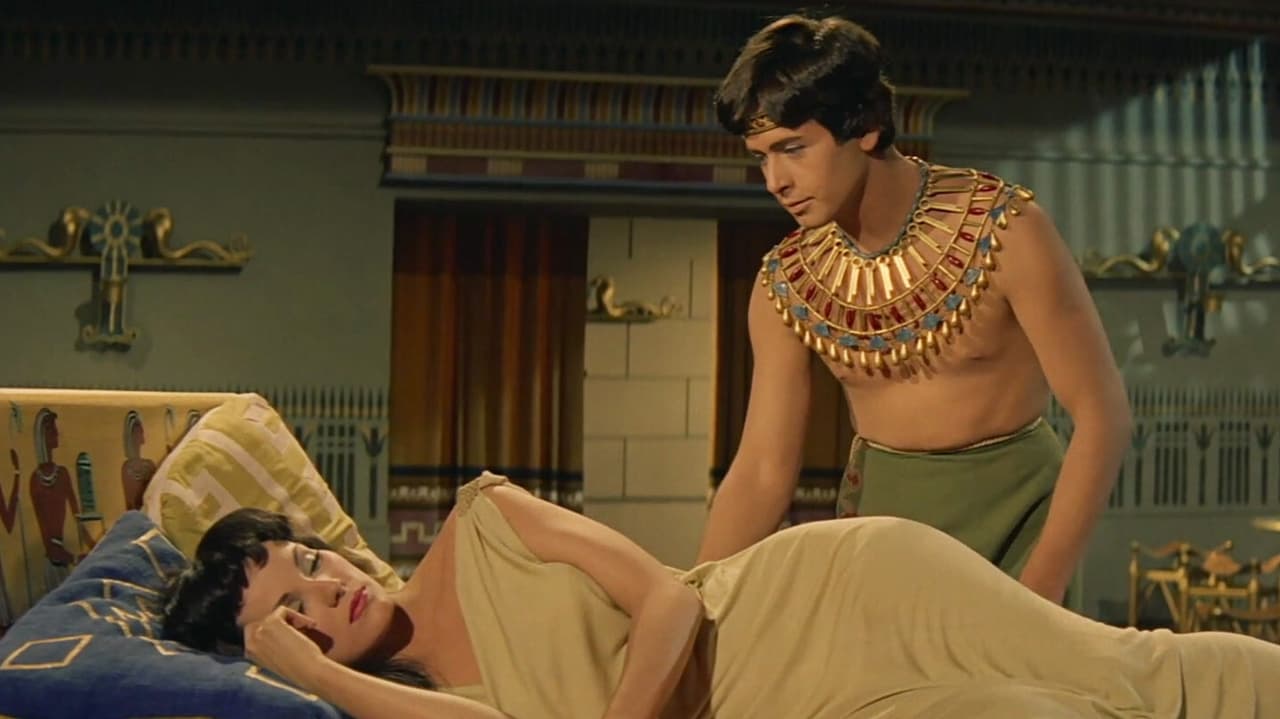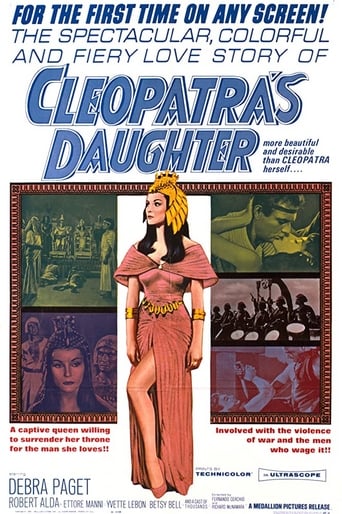



Plot so thin, it passes unnoticed.
It is a performances centric movie
Fanciful, disturbing, and wildly original, it announces the arrival of a fresh, bold voice in American cinema.
View MoreIt's an amazing and heartbreaking story.
Meanwhile back at the sarcophagus, Italian filmmakers go to great lengths to create an effectively atmospheric Peplum set during the time of the Ancient Egyptian empires. Or there abouts, depends on which language version you encounter. The sets are elegant, the costumes right out of a high school textbook and the film delivers the goods if you like talky period-type drama mixed in with your Swords & Sandals. Lots of intrigue involving royal courts, family lineage, duplicitous religious leaders, and Debra Paget decked out in a Pharaonic babe-getup that is very easy on the eyes. She can lounge around eating grapes over at my place anytime and the dialog is surprisingly fluid for Italian translated to English.All of which is routine. The film will stand out in my mind as the one where the threat of having one's tongue cut out is repeated sufficient times to prove curious. The first time was cool. The second time was odd. The third time had me wondering if the dubbing was on right, and the fourth time made me laugh. Maybe there's a drinking game to be had here. Nothing else about the film's story made much of an impression though I do not regret the time invested (wasted?), no, consumed by watching it. A mummy subplot could have been cool, or maybe more slave chicks. At least a giant cyclops or something, Guys.Which is perhaps why having a female lead with a respectable pedigree in such a production will ultimately work against the film's appeal beyond the boundaries of genre viewers. Since Ms. Paget is the intended focus of our ardor the fate of random half naked slave chicks hurled to their doom for the entertainment of some slavering despot becomes less pressing to the needs of the plot, and sadly the filmmakers took the easy way out. Court intrigue or giant a cyclops devouring centurions? If choosing the former, bingo.
View MoreCleopatra, after the civil war that followed the assassination of Caesar, met with Marc Antony in Assyria where they planned the defense of Egypt against the Romans. Before leaving, Cleopatra entrusted her young daughter, Shila, to the rulers of Assyria to be brought up as their own. After Marc Antony's defeat and Cleopatra's death, Egypt, for the next twenty years, was torn apart and ruled by a youthful Pharaoh, Nemorat, with his despot Queen Mother, Tegi, who desired to unite both kingdoms and strengthen her son's rule by conquering Assyria and making Shila, now a beautiful woman, his queen.Sounds intriguing, right?Not sure what the budget was for this period piece, but it's tedious
View MoreLooking much as she did in "The Ten Commandments", Debra Paget points out here that movie costume designers didn't think that fashion had changed between the days of Moses and post Cleopatra days a thousand years apart. The ridiculous story has Cleopatra with an alleged daughter Shila given up to the Assyrians to raise who becomes against her will the new Pharaoh's wife and is accused of his poisoning after refusing to make love to him. The fact that not only is this Pharaoh (Corrado Pani) totally insane but possibly gay makes the film even more ridiculous with his overly possessive mother (Yvette Lebon) standing over everything he does while it is obvious all the time who was responsible. Throw in the doctor (Ettore Manni) who must save Shila from being buried alive with the dead Pharaoh's rotting corpse and you have one laughably macabre plot.Poorly photographed and dubbed into English, this film does at least try to make itself look like it attempted to give a true ancient Egyptian feel to the proceedings. While historically speaking the film is utter tripe, at least the film doesn't utilize phony British accents as Hollywood did to dub the performers, and some of the props momentarily had me convinced that there was a slight semblance of authenticity to what they were trying to dramatize.
View MoreI remember this film being on TV as a movie, which my mother didn't like, so I never got a chance to see it for over 40 years until now. I notice that this Italian movie is probably not about Cleopatra's Daughter at all. Debra Paget somewhat fresh from "The Ten Commandments" again revisits ancient Egpyt in this classic. The title of the Italian original is "Sepolchro dei re," "Sepulchre of the King" shows that this film could be about a New Kingdom pharaoh (16th to the 11th centuries B.C.) rather than about a Ptolemaic one (4th to the 1st centuries B.C.). I liked the film, and I was glad to be finally able to see it. A famous reviewer says that the film is sadistic.
View More